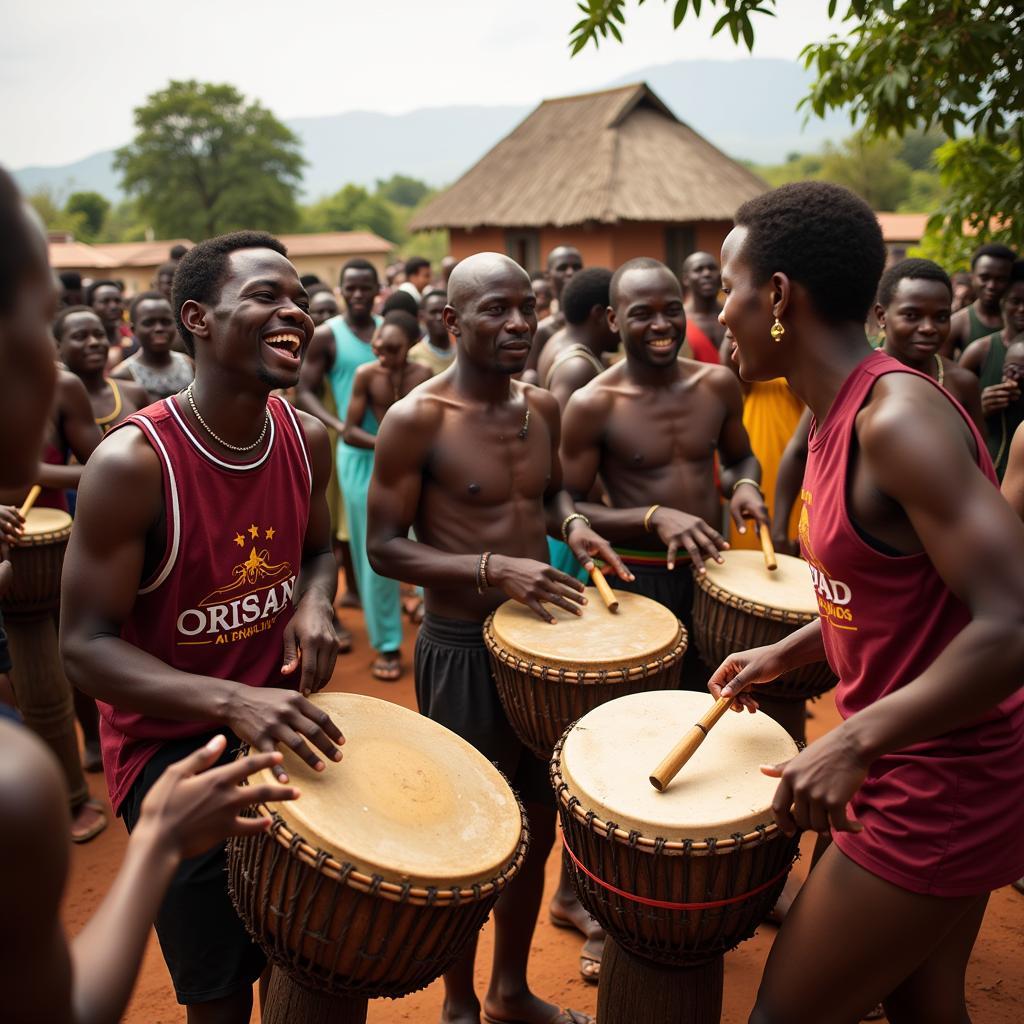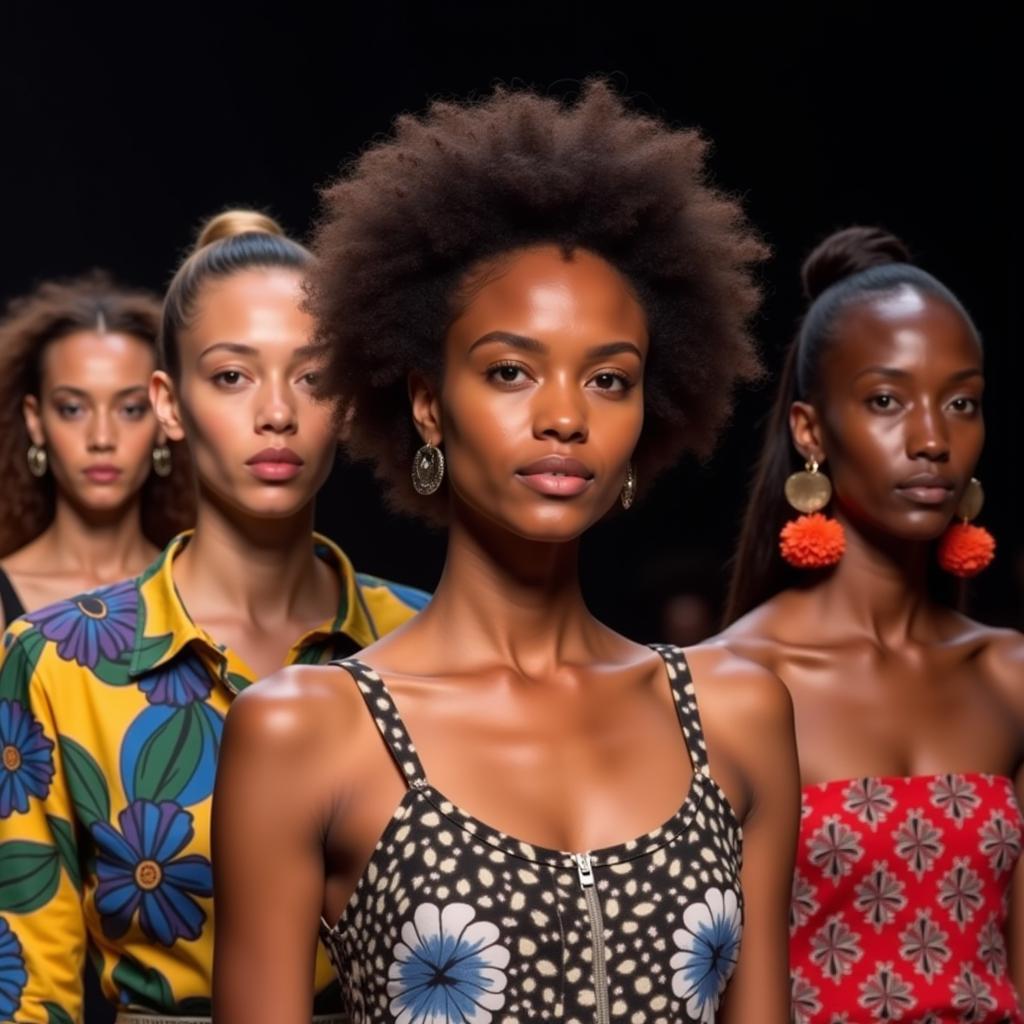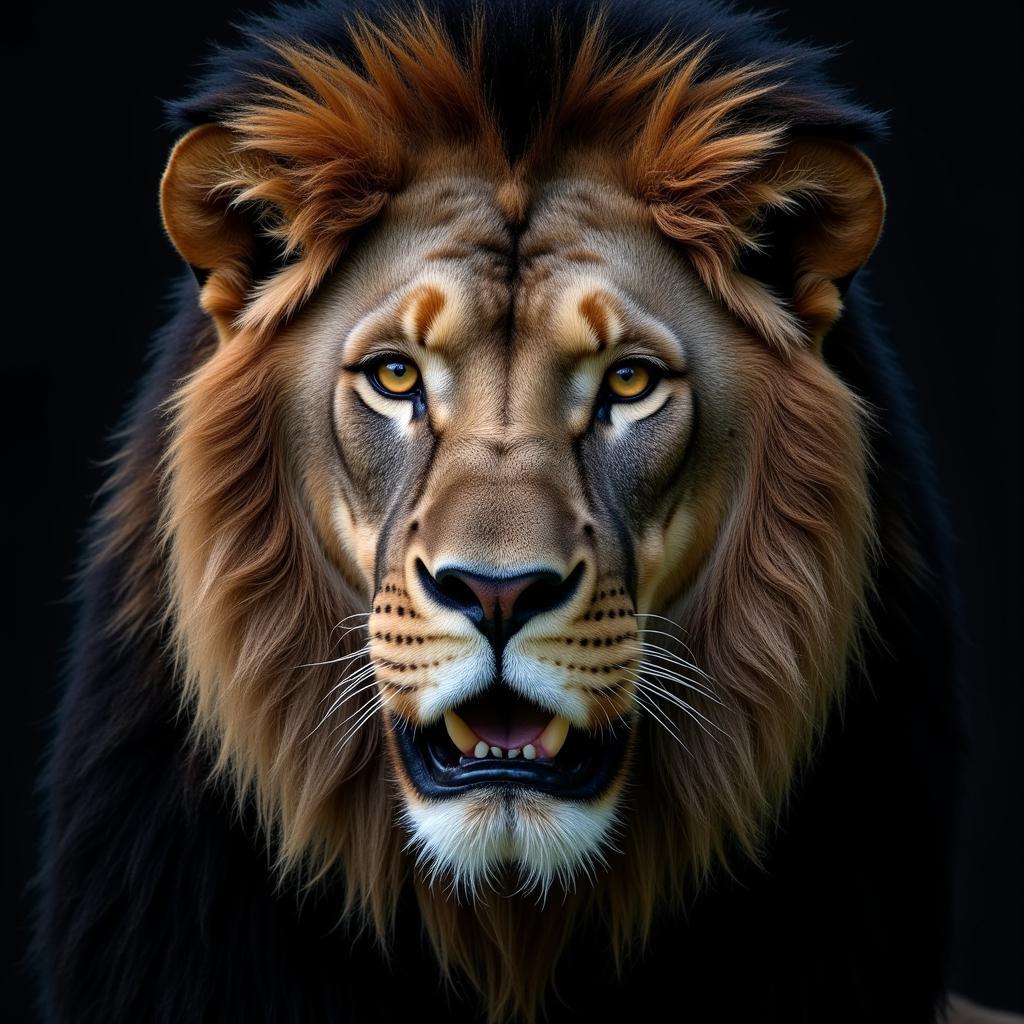The Enthralling World of African Drum Sounds
African drum sounds are more than just rhythmic beats; they are the heartbeat of a continent, echoing ancient traditions, vibrant celebrations, and the very soul of African culture. These powerful sounds tell stories, connect communities, and offer a captivating glimpse into the diverse musical landscape of Africa.
Exploring the Rich Tapestry of African Drum Sounds
From the pulsating rhythms of the djembe to the hypnotic tones of the talking drum, African drums produce a mesmerizing array of sounds. This diversity stems from the vast array of drumming traditions found across the continent, each with its unique instruments, playing techniques, and cultural significance. For example, the djembe, originating from West Africa, is known for its sharp slaps and deep bass tones, often used in celebratory events. Conversely, the talking drum, also from West Africa, mimics the tones of human speech, used for communication and storytelling. The rhythmic complexity and nuanced soundscapes created by these drums are truly captivating, making them a central element of African music.
Do you want to incorporate the vibrant energy of African drums into your music? Check out some upbeat African instrumental music.
The Cultural Significance of African Drums
African drums are deeply intertwined with the cultural fabric of the continent. They play a crucial role in various ceremonies, rituals, and social gatherings. From birth celebrations to funerals, harvests to weddings, the drums provide a soundtrack to life’s significant moments.  African drummers performing at a village celebration They are not merely instruments; they are a means of communication, a spiritual connection, and a powerful symbol of community and identity. Imagine a world without music – African drum sounds fill that void with vibrant life.
African drummers performing at a village celebration They are not merely instruments; they are a means of communication, a spiritual connection, and a powerful symbol of community and identity. Imagine a world without music – African drum sounds fill that void with vibrant life.
What are the Different Types of African Drums?
The African continent boasts a wide variety of drums, each with a unique shape, size, and sound. Some of the most well-known include the djembe, talking drum, kpanlogo, and sabar. These drums are crafted from various materials, including wood, animal hide, and gourds, reflecting the ingenuity and resourcefulness of African artisans. The djembe, for instance, is a goblet-shaped drum played with bare hands, while the talking drum is an hourglass-shaped drum played with a curved stick. Each drum has its own distinctive timbre and playing technique, contributing to the rich tapestry of African drum music. You might even recognize some African drum sounds in popular songs, like “Dice Baby.”
Want to experience authentic African rhythms? Learn more about African djembe rhythms.
The Art of African Drumming
Playing African drums is not just about hitting a surface to produce sound; it’s a complex art form that requires skill, precision, and a deep understanding of rhythm. Drummers often undergo years of training to master the intricate techniques and polyrhythms that characterize African drumming. These complex rhythmic patterns, layered on top of each other, create a mesmerizing and dynamic soundscape. This intricate interplay of rhythms is what makes African drum music so captivating and unique.
How are African Drum Sounds Used in Modern Music?
African drum sounds have transcended geographical boundaries and have found their way into various genres of modern music, including jazz, hip-hop, and world music. Their influence can be heard in the rhythmic structures, percussive elements, and overall energy of countless songs. From providing a driving beat to adding a layer of texture and complexity, African drum sounds continue to inspire and enrich musical creations around the world. You can even find African drum music ringtones for your phone!
Are you interested in experiencing the vibrancy of African culture? Explore African festivals in America.
Conclusion: The Enduring Power of African Drum Sounds
African drum sounds are a testament to the rich cultural heritage and artistic brilliance of the African continent. They are more than just music; they are a powerful expression of life, community, and spirituality. From ancient rituals to modern music, these captivating rhythms continue to resonate across the globe, inviting us to connect with the heartbeat of Africa. African drum sounds are an invitation to explore a world of rhythm, tradition, and cultural expression.
FAQ:
- What is the most common African drum? The djembe is one of the most recognizable and widely played African drums.
- What are African drums made of? They are typically made of wood and animal hide.
- What is the significance of drumming in African culture? Drumming plays a vital role in communication, rituals, and celebrations.
- How are African drums played? They are played with hands, sticks, or a combination of both.
- What are some popular African drumming rhythms? Some well-known rhythms include the Kuku, the Yankadi, and the Soli.
- Where can I learn more about African drumming? Numerous resources are available online and in communities around the world that offer African drumming classes and workshops.
- How can I incorporate African drum sounds into my music? Sample packs, virtual instruments, and collaborations with African drummers are all ways to integrate these unique sounds.
Common Scenarios:
- Someone wants to learn to play the djembe.
- A musician wants to incorporate African drum sounds into their compositions.
- A teacher wants to use African drums in their music class.
- Someone is interested in learning about the cultural significance of African drums.
Other Related Articles/Questions:
- The History of African Drumming
- Different Types of African Drums and Their Origins
- African Drumming Techniques for Beginners
- The Role of Drums in African Rituals
- Exploring the Healing Power of African Drumming
When you need assistance, please contact us by phone: +255768904061, email: kaka.mag@gmail.com, or visit our address: Mbarali DC Mawindi, Kangaga, Tanzania. We have a 24/7 customer service team.

